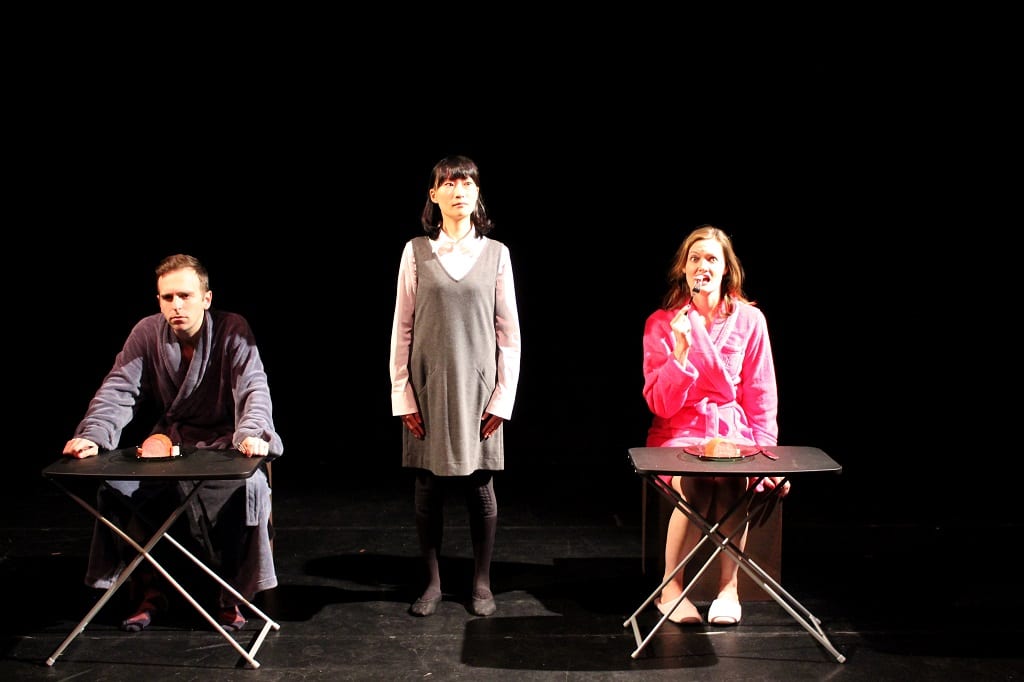The title notwithstanding, Minami can’t really have adventures; she’s an android with no knowable inner states. But for that matter, Leah Nanako Winkler wants us to wonder, does anyone have knowable inner states? What makes us attribute humanity to other humans, and how do we know not to treat each other as mere objects?
Winkler’s arch, wry sketch of a play trucks in such questions through the presence of a poised, inscrutable robot who comes by mail order to a couple (staccato Alex Herrald and frustrated Elizabeth Zepherine McDonough) somewhere seemingly in a New Yorker cartoon. Yurika Ohno is surprisingly convincing as Minami–designed to be blandly pleasant-to-neutral in anyone’s company, just robotic enough so the seams show in some of her movements. She really seems to have a robot’s synthesized consciousness, a mildly sweet blankness whose selflessness seems to acquire a hint of virtue in comparison to the rest of us.
I use the Orientalist term ‘inscrutable’ here because Minami arrives in a box from Japan with no instruction manual, speaking seemingly random sentences in Japanese, a language not known to the couple trying to operate her, nor presumably to 99 percent of the audience. Her Asianness seems to be part of what allows others both to accept her and to dehumanize her. We see the suburban playlet unfold around Minami as they try to figure out how to make her function, try her out on domestic tasks and, bit by bit then all at once, discover how fully they can exploit her together. It’s the couple that has the adventure, a release from their otherwise unsatisfying lives.
So the pattern is established: Minami is the vessel into which others pour unmet needs in their lives. Jahna Ferron-Smith plays an anxious figure lost without her late mother in her life; Melissa Czyz a libertine who feels judged by Minami’s gaze. Ariel Estrada appears as Minami’s inventor, spelling out the philosophical romance of his quest in a role similar to the one he played last season in A Persistent Memory (also reviewed in PlaysToSee.com).
Winkler plays drolly with the conceit of Minami learning lines from her environment, more artfully and ambiguously than “Hasta la vista, baby”. And she has some fun with the random blandness of the generic couple, their insistence on having ham loaf for one. Her critique of human behavior is more winking than Westworld.
There is no real arc in the story; it’s more like a series of, well, maybe Jules Feiffer cartoons–knowing illustrations of points rather than scenes. We are advised to not be surprised by the abrupt ending because this is just Part One of a trilogy. Presumably Minani will have more adventures in her future, or rather other situations where she passively reveals the unevolved nature of human beings and human relationships. There are topical references in Part One as fresh as the last election cycle, so we suspect that the adventures in Parts Two and Three haven’t even all arrived in Winkler’s imagination yet. I suspect an arc of some kind will emerge and that the whole might get reworked into something more cohesive after that happens. Either way, I’ll be interested to see how Winkler continues to bring Minami to life, whatever that means.

